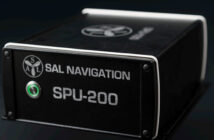
By Helen Masters,
Senior Vice President and
General Manager, Asia-Pacific at
Infor Systems
Think about your boss. You may be experiencing a positive feeling due to their genuine support and encouragement — or you may have felt a tinge of frustration resulting from their controlling and authoritarian approach. So, the following news may be or may not be welcome: the role of manager (as you know them) is going the way of the dinosaur.
We are incessantly bombarded with the message that artificial intelligence (AI) and robots will soon replace as many as half of today’s existing jobs. While there is undeniably an Orwellian fear associated with the future of work, we must step back and remember that we have already relinquished control to technology in other areas of our lives. Consider transportation: virtually all of us have ridden a train with no human conductor, self-driving cars are supposedly just around the corner, and soon airplanes may not even need a captain. So, is the notion of replacing your existing manager with a digital one that hard to imagine? And if you think this is a tale about the distant future, keep in mind that Gartner predicts in 2018 more than 3 million workers globally will be supervised by a ‘roboboss’.
Operational Automation
Before we wish them a bon voyage, it may be helpful to reiterate the actual role of a manager. The basic premise of “management” in most organisations is centred on the responsibility to monitor individuals and ensure compliance with policies/procedures. This is admittedly an over-simplification that excludes many other critical obligations, but it is nonetheless an accurate portrayal of most of their daily tasks…Click here to read full article.






